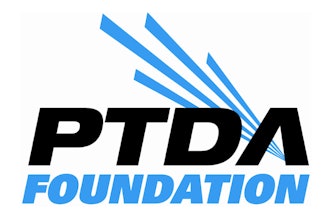
Part 2 of Industrial Distribution's 2024 Salary Report offers insights into how sales personnel view their jobs and pay in an uncertain climate; read part 1 — covering executives and mid-level management roles — here.
According to our recent Survey of Distributor Operations, the role of the salesperson is, by and large, the hardest one to fill within distribution companies. And while attracting and retaining the right sales team is a tall order for any business, it appears that the sales and sales management professionals who completed our survey are exhibiting incremental gains in their compensation satisfaction.
The sales category exhibits the greatest mix of age, gender and company size, and largely hails, again, from the Midwest and Northeast. Similar to what we saw in the executive category, this year’s total pay package fell right between the numbers reported in 2022 and those of 2023. For example, last year’s total compensation was $128,000 — up about 10% from the year prior, when this group reported an overall package of $115,000. This year, the total falls around $119,000, with $92,000 attributed to base salary and about $27,000 to additional compensation like commissions and bonuses. This shift downward still falls within a standard margin of error, but it could also be reflective of the pressures facing distributors — and subsequent impacts to sales goals.
When it comes to commissions, salespeople are also far more likely than the rest of the surveyed groups to earn them, and we received a lot of diverse feedback on the role that commission plays within their overall pay package. For example, respondents were allowed to check any of the following that apply, and this is how they characterized their commission structure:
- It is consistent and comprises a large portion of my earnings (29%)
- It is inconsistent and a small portion of my overall earnings (24%)
- Goals are attainable and motivate me (16%)
- Goals feel unattainable and are a source of stress (9%)
Despite the variance, it does appear that more salespeople are happy with their pay than not — though the group is still not as satisfied as their executive-level counterparts. Compared to 83% who said their compensation is fair in the executive group, only 61% of salespeople said the same. Still, this represents the highest percentage from salespeople in the last several years: in both 2021 and 2022, 53% said they felt well-compensated, and last year, that figure sank to 44%.
Perhaps this improvement in satisfaction has come with some pay increases. Nearly half said they saw their pay go up in the past 12 months, which was most commonly characterized as a “standard, merit-based pay raise” (47%).
Interestingly, this group – despite being more satisfied than the mid-level management segment – saw more declines in their compensation. Seven percent of sales and sales management professionals surveyed said they’d received a cut to either salary or benefits in the past year. Fewer than two-thirds, meanwhile, said they have “no concerns” that they may see a reduction in pay or benefits in the coming year — a smaller percentage than both the executives (71%) and the mid-level managers (76%), who appear to feel more secure.
Here’s what else the sales group had to say:
- “For this specific role I feel fairly compensated, but I am looking for more.”
- “We are integral to the company but are the lowest paid department.”
- “Not keeping up with the cost of living.”
A majority of the sales and sales management group – 55% – believe their company does not do an adequate job of paying competitive wages in order to attract and retain top talent. This perception goes a long way when you consider that 79% of this group also said they believe their job demands have increased over the past year. When seen together, this could paint a picture of a team bearing the weight of turnover — and the subsequent impact on the workload of those left behind. While it’s not necessarily related to their own salaries, it’s a factor that nonetheless affects them from a job satisfaction standpoint.
In Conclusion
Overall, the results of this year’s report show some variance. Although compensation appears to be fairly steady over last year – with wide margins of workers receiving pay increases – there is still a notable group of dissatisfied employees. That said, in some areas, that group is shrinking — although it’s up to each individual business to determine whether this level of dissatisfaction in their own organization exists and should be addressed.
Secondly, as always, the question of veracity always applies in a survey like this one: is someone with a gripe more likely to share their opinion than someone who is contentedly going about their business? Maybe so, but it can still remain a good indicator of some overall trends (or, at least, squeaky wheels). While distributors don’t necessarily need a canary in the coal mine – they know that there is always a need to boost pay and benefits when budgets allow – the timing of the latest findings suggests that, perhaps, things might be stabilizing for distribution company workers and their wallets.
Read the full 2024 Salary Report and more in the latest edition of Industrial Distribution magazine.























